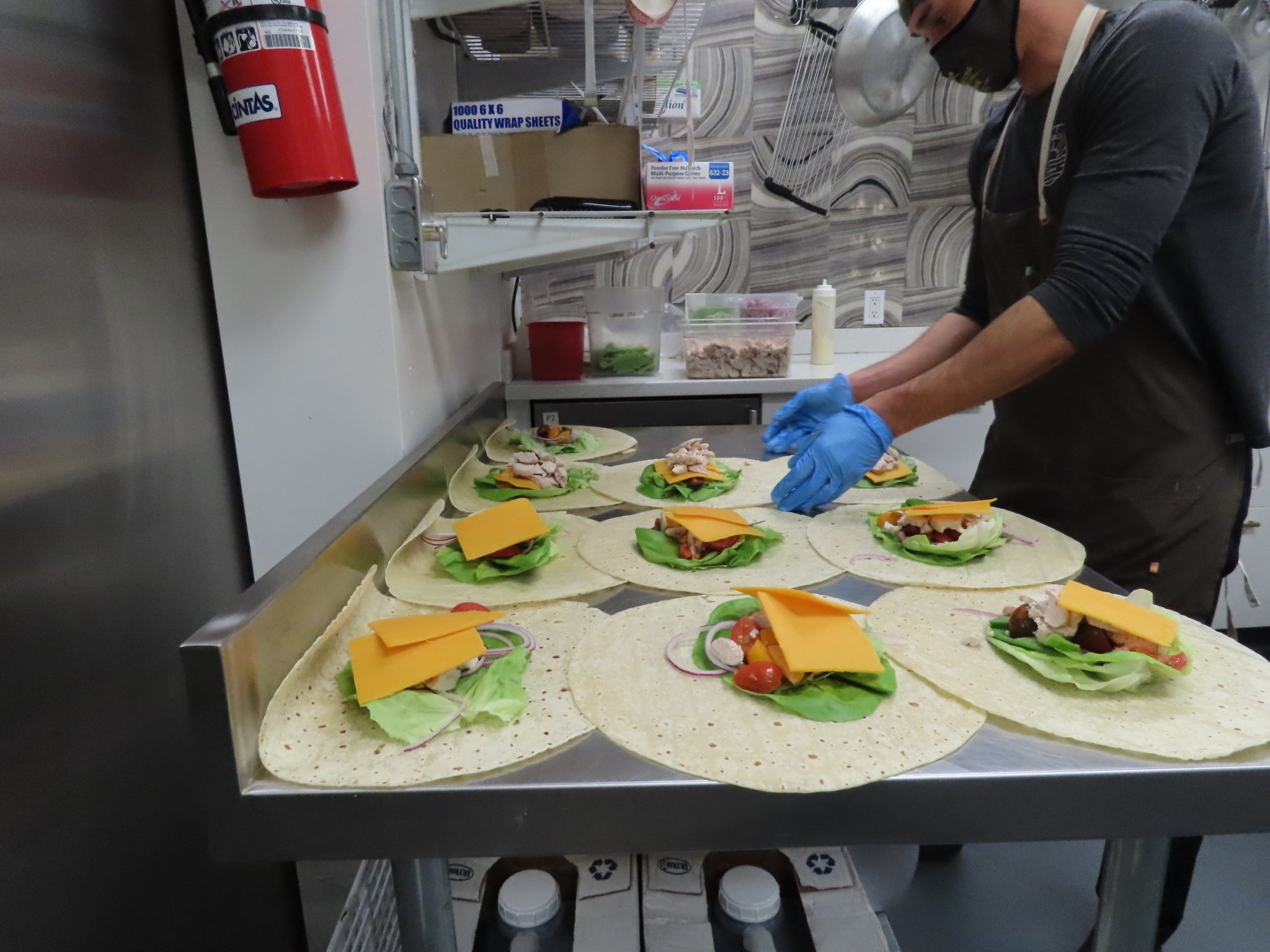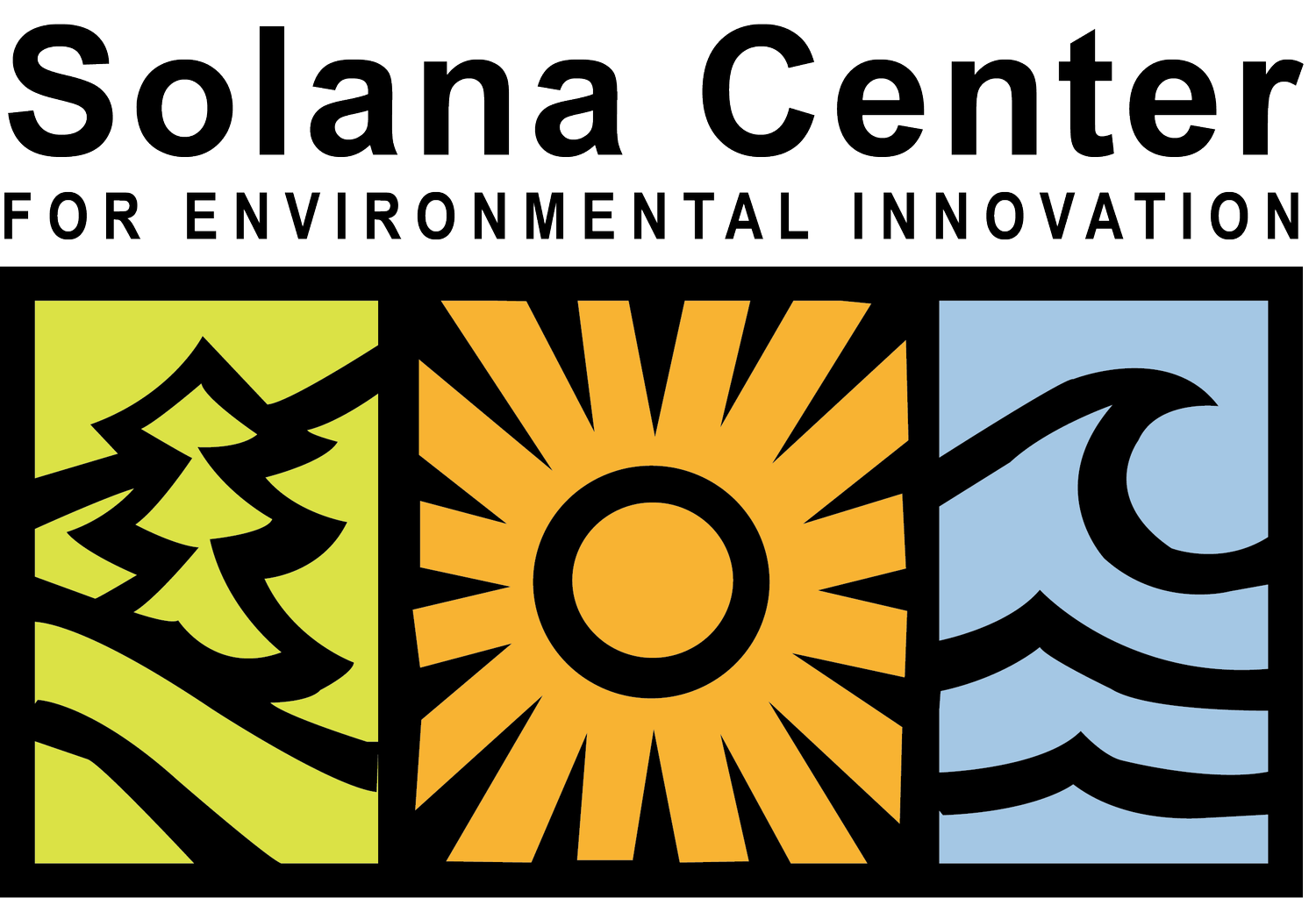
BUSINESS RESOURCES
California leads the nation in environmental stewardship, setting ambitious standards that influence how businesses operate across the state. From waste reduction to clean air initiatives, understanding these regulations is key to creating a more sustainable future.
At Solana Center, we work with local businesses to turn sustainability into opportunity—compliance can save money, reduce your commercial footprint, and contribute to healthier communities and ecosystems.
In response to the climate crisis, California has implemented a statewide organic waste recycling and surplus food recovery law: SB 1383. Organic waste (meaning materials such as food, yard waste, food-soiled paper, and natural fibers) makes up over half of California's waste stream. When landfilled, it generates methane, an extremely potent greenhouse gas that contributes to climate change and public health concerns. In a statewide effort to reduce emissions of short-lived climate pollutants, particularly from organic waste, Senate Bill (SB) 1383 requires organic waste diversion and sets parameters for edible food recovery.
Solana Center is proud to partner with cities throughout San Diego County to provide inspections, resource materials, and proof of compliance submission.
SB 1383
Resources
-
Videos
How to Reduce Waste in a Commercial Restaurant Kitchen - Interviews with local San Diego chefs
Commercial Kitchen Organic Recycling Set Up & Staff Training - Interviews with local San Diego chefs
"Why I Care About Food Waste" - Interviews with local San Diego chefs
-
There is a groundswell of legislation both globally and specific to California to address the problem of waste.
Learn more about key legislation around waste reduction and diversion
-
CA Senate Bill 1383 (SB 1383) aims to reduce the amount of organic matter in landfills to reduce the amount of methane emissions generated and recover excess edible food to feed people in need.
-
Significantly increases the source reduction requirements of plastic packaging and single use plastics, and increases the recycling requirements to reduce pollution. Read more.
-
Regulates the use of recycling symbols on many plastic and packaging products. The measure prohibits the use of the chasing-arrows symbol on products that are not truly recyclable.
-
Passed in 2016, this law prohibits Passed in 2016, this law prohibits many stores in California from providing single-use plastic carryout bags to their customers. Stores may instead sell reusable bags or recycled paper bags.
Read more from CalRecycle.
-
California will require local jurisdictions across the state to implement an organic waste recycling program to divert organic waste generated by businesses and multi-family properties.
Read more from CalRecycle.
-
Businesses are required to provide organics and recycling containers for customers to collect waste generated from products purchased and consumed on the premises.
Read more from Californians Against Waste.
-
Implemented in 1987, California's Bottle Bill had a big impact on recycling rates increasing from 52 percent to a program high of 85 percent in 2013. The program was designed to be a self-funded operation to reduce litter and increase recycling rates by allowing consumers to cash in bottles and cans with a California Redemption Value (CRV).
Read more from CalRecycle.
-
Federal law providing a national standard of liability protection for both food donors and the nonprofits accepting these donations. California further specified liability coverage for food donation under this act. The Good Samaritan Act is meant to encourage the donation of food and grocery products to nonprofit organizations for distribution to needy individuals.
Read more from Public Health Law Center.
-
Sit-down restaurants in California are prohibited to distribute straws automatically, and instead only provide a straw when it is requested by the customer.
Read more from Californians Against Waste.
-
California furthers the transition from single-use items to reusables. Under this law temporary food facilities at events can serve customers in reusable containers rather than single-use disposables. The law also clarifies existing health code laws allowing the public to bring reusable containers to standard restaurants for take-out.
Read more from Californians Against Waste.
-
AB1276 - Single-use Food Accessories Bill - All single use food accessories should only be handed to customers if they ask for them. Read more.
SB502 - Green Chemistry Product Disclosure Bill - Increases transparency regarding chemicals of concern in a product. Read more.
SB 707 - also known as the Responsible Textile Recovery Act of 2024, is a California law that establishes an Extended Producer Responsibility (EPR) program for textiles. This means that producers of apparel and textile products will be responsible for managing the end-of-life of their products, aiming to reduce textile waste in landfills. The bill requires these producers to form or join a Producer Responsibility Organization (PRO), which will be responsible for developing and implementing plans for collecting, transporting, repairing, sorting, and recycling textiles.
-
Free educational reference materials including videos, and resource guides spanning waste prevention, diversion, and more created in collaboration with many local San Diego jurisdictions.

